Israel expanded operations in Gaza City on Tuesday as Defense Minister Israel Katz declared that the campaign is now geared to two non-negotiables: freeing the hostages and defeating Hamas. “Gaza is burning,” he wrote on X, praising troops “striking the terror infrastructure with an iron fist” to create conditions for a hostage release. The government in Jerusalem indicated it will not pause until both objectives are met.
Hours earlier, US Secretary of State Marco Rubio—departing Israel en route to Doha—said the push into Gaza City had begun, but signaled that Israel had a time-limited green light from the Trump administration. “We’re not talking months—days, maybe weeks,” Rubio said. Washington still prefers a negotiated arrangement, he added, but was unequivocal in his insistence that any endgame must include Hamas’s disarmament.
Hamas are not agents of peace, but agents of terror and barbarism. They are still holding 48 hostages and using civilians as human shields.
Let me be clear: as long as Hamas exists, there will never be peace in this region. pic.twitter.com/TSWKZ2SLhf
— Secretary Marco Rubio (@SecRubio) September 15, 2025
Overnight, the IDF said it eliminated 21 senior operatives of the Iran-backed Palestinian Islamic Jihad, including key figures in weapons production, artillery command, and sniper units. The army said hundreds of militants have been killed since ground operations resumed and vowed to continue targeting all armed groups.
As jets struck dozens of sites across Gaza City overnight—blasts audible as far as central Israel–and the IDF confirmed that two divisions were already operating in the Hamas stronghold, with a third set to join the fight, Prime Minister Benjamin Netanyahu restated his war cabinet’s markers:
- Disarm Hamas;
- Bring home the 48 remaining hostages;
- Demilitarize Gaza;
- Retain Israeli security control; and
- Stand up an alternative civil administration.
He publicly thanked President Donald Trump for what he called “unwavering support” on both the war and efforts to free the hostages. Trump warned that Hamas was pushing captives “to the surface” as human shields—“a human atrocity”—and demanded their immediate release.
BREAKING:
Trump threatens Hamas that all bets will be off if they use the Israeli hostages as human shields above ground during Israel’s ground offensive in Gaza pic.twitter.com/QvTy85fak1
— Visegrád 24 (@visegrad24) September 15, 2025
Trump has argued since Sept. 7 that a ceasefire-for-hostages framework was close. Hamas rejected the latest US proposal, and continues to insist on a deal that meets its own terms: full immediate IDF withdrawal, phased hostage release, thousands of jailed Palestinian terrorists set free, and Hamas keeps its weapons.
Israeli outlets reported that the emergent deal would suspend the Gaza City takeover in favor of direct talks under Trump’s direct auspices, accompanied by a pause in fighting and a final decision reserved to the American president. On day one, if Trump’s outline is followed, all remaining hostages would be freed; in exchange, Israel would release several thousand Palestinian prisoners, including men serving life sentences for murdering Israelis.
While Rubio said the US will continue pushing the diplomatic track, he’s not naive, and understands that Israel must in the meantime retain military freedom of action. His “ideal outcome” is for Hamas to lay down its arms and end the violence, but America’s top diplomat know the “barbaric terrorists” are unlikely to ever comply.
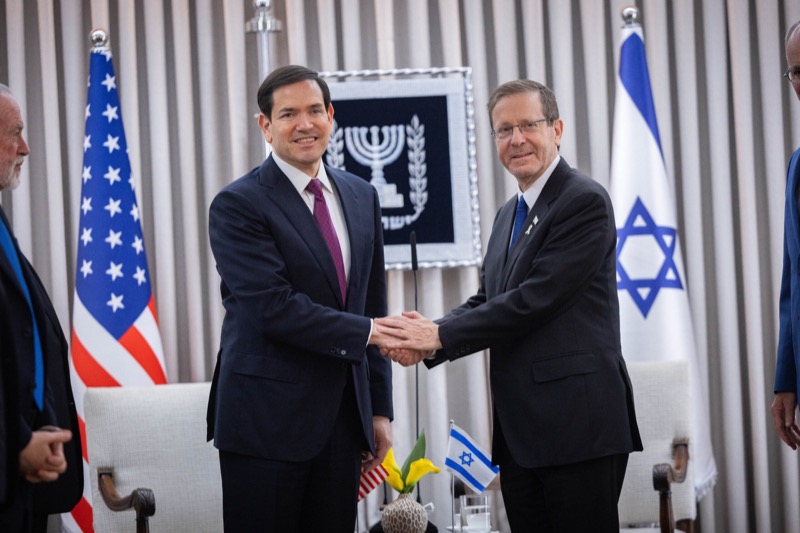
Visiting US Secretary of State Marco Rubio with Israeli President Isaac Herzog in Jerusalem. September 15, 2025. Photo by Yonatan Sindel/Flash90
The Qatar problem: ‘indispensable’ mediator, problematic patron
Rubio’s itinerary also put a spotlight on Qatar. The Israeli strike on Hamas leaders in Doha rattled Washington, which said it was not briefed in advance. Rubio called Qatar “indispensable” to talks—reflecting the US–European view of Doha as a wealthy, useful ally that hosts American forces, bankrolls projects across the West, and positions itself as mediator.
Israel’s view is harder edged. For years, Jerusalem maintained a quiet working channel with Qatar—even an economic office—and leaned on Doha to funnel humanitarian funds to Gaza. But the Oct. 7 massacre and evidence of Hamas’s safe haven in Doha hardened Israeli skepticism: a state that shelters and finances Hamas’s leadership cannot simultaneously be treated as neutral umpire. The Doha strike made that contradiction unavoidable.
This divergence now sits at the center of Israel’s friction with its allies. Washington and Europe argue that Qatar’s access to Hamas is precisely what makes it useful. Israel contends that this access exists because Doha bankrolls and protects the same network Israel is fighting—an untenable dual role that extends the war’s half-life. As the battlefield moves into Gaza City and hostage talks churn, the question is whether the West recalibrates its Qatar bet, or doubles down on a mediator whose leverage is rooted in indulgence of Hamas.
For Jerusalem, the policy is straightforward: pressure must climb until hostages are released and Hamas loses the capacity to rule and rearm. For Washington, the path runs through a tight clock, a negotiated package, and Qatar’s brokerage. The coming “days, maybe weeks” will test which theory of the conflict—relentless coercion, or mediated sequencing—can actually deliver the hostages and close the war.
Want more news from Israel?
Click Here to sign up for our FREE daily email updates


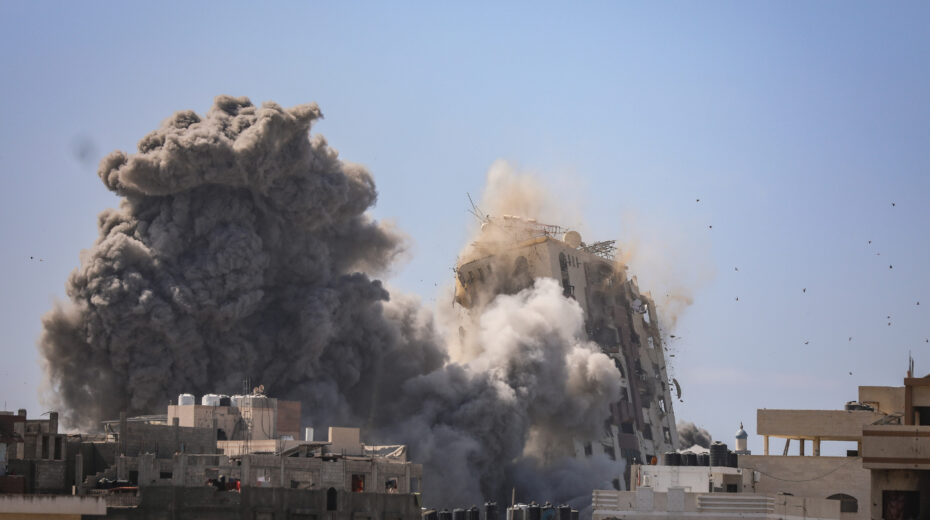


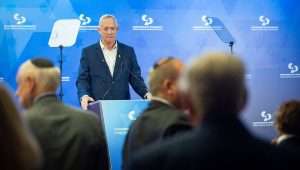
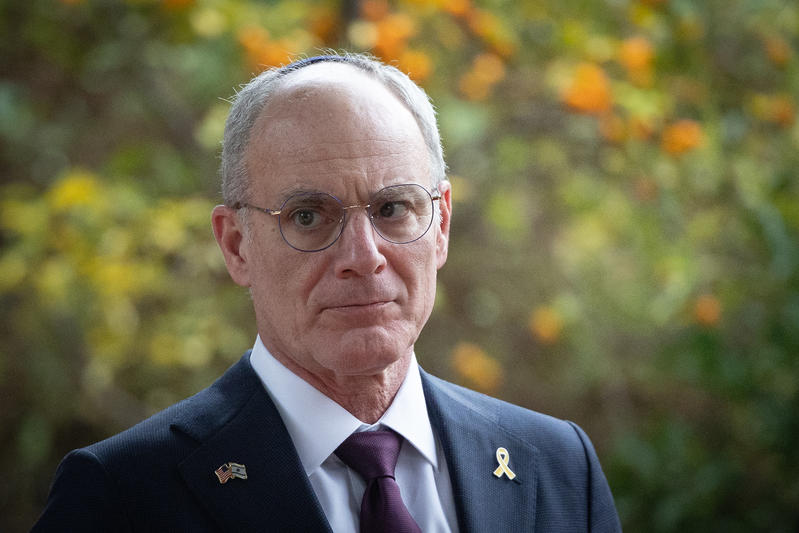






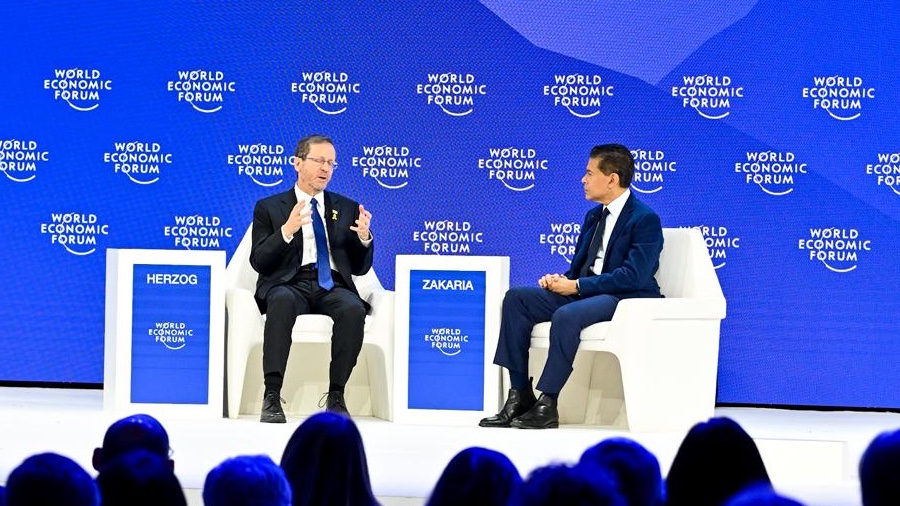

Sadly, very few Americans in the upper echelons of our government have ever been in mortal combat, they don’t have a clue how to really side with the Israeli government in the reality Israel is in. Most of those in Israel have military experience, something the Americans don’t have, they need to realize talk is cheap when facing forces of pure hatred. There is much to be learned here, but I don’t see the truth being taken seriously by the US. What diplomacy is supposed to represent was very badly cheapened by the former administration and the democrat party as a whole. Making Gaza a vacation spot in the Mediterranean isn’t going to happen like Trump thinks it will. After the blood stops flowing, there will need to be a time of healing before there can be any building. I support Trump, but there are many things that need to happen before those ideas of a resort area can happen in Gaza. Now, nothing should stand in the way of totally defeating Hamas and company, nothing.
As a former U.S. Navy Veteran onboard the USS Nimitz (CVN-68) visiting Israel in April 1978 in Haifa Bay, I totally agree with the above comments.